Partnerships for Nature: insights from Indigenous-led models in Canada
15 April 2025 / WORDS BY Pollination Foundation
read article
London+44 203 355 1556
Sydney+61 2 8313 7109
Melbourne +61 2 8313 7109
Washington +1 872 201 1168
In this second edition of Nature Finance Focus, we highlight a number of models that are helping to unlock and scale nature investment. Some models are well established, alongside others in which we see significant promise and growth. By showcasing these tangible case studies, we aim to provide ideas and options which can be taken up by the global bank or investor, or by the major corporate.
The report also details the findings of our biennial survey of 500 institutional investors across the UK, USA, Australia, Singapore and Japan.
View reportFour years ago, when Climate Asset Management launched as a joint venture between HSBC and recently formed consultancy Pollination, it laid out ambitious plans to become the biggest investor dedicated to natural capital.
21 September 2023 / WORDS BY Zoe Whitton
THE NATURE FINANCE FOCUS REPORT IS AVAILABLE HERE.
At Pollination we spend a lot of our time working on nature with corporates and with investors, and also finding ways to invest in nature-related opportunities and solutions. We find that many corporate leaders are still unsure of how to build their knowledge and begin developing their approach. We also see our clients and counterparties across industry engaging with nature for a variety of reasons – some are focussed on opportunities, and others on risk.
We wanted to understand more about how investors specifically are engaging with nature, as this is relevant not only for how we expect capital markets to develop but also for what will be asked of the companies we support. In a survey for our new Nature Finance Focus report, we asked 557 global investors who are working on and thinking about nature for their view on risks, opportunities, and challenges. We asked them what they were doing, why they were doing it, and where they were doing it. We also asked about some of the challenges and barriers they are facing.
A number of developments across recent years have prompted investors to increase their focus on nature. Foremost among these are Global Biodiversity Framework established in 2022 and the Taskforce for Nature-related Financial Disclosures (TNFD), and these are accompanies by range of new regional policy and regulatory instruments designed to reduce nature degradation and consequent risk. With the TNFD now live investor interest in and work on nature is likely to continue to increase.
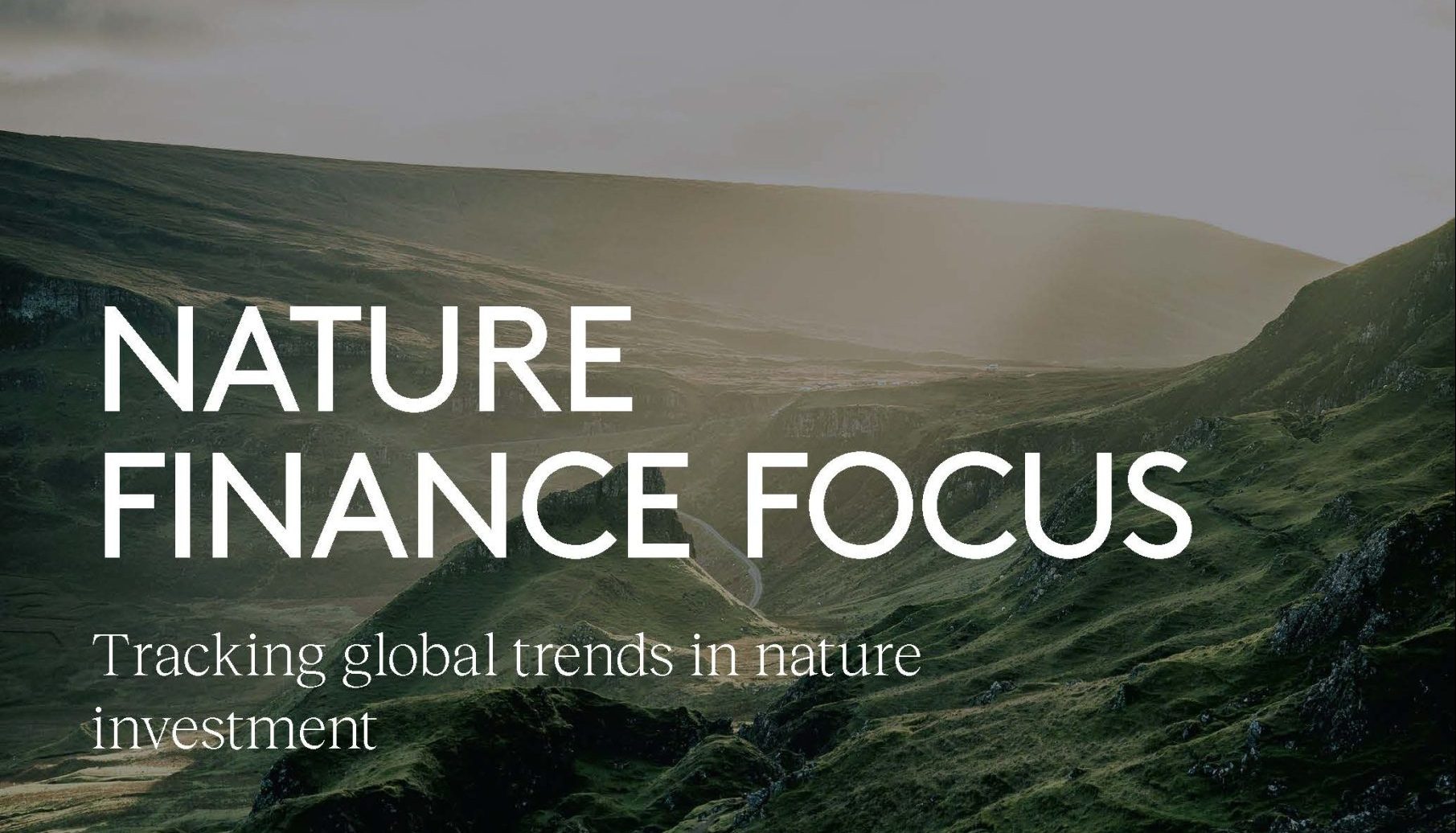

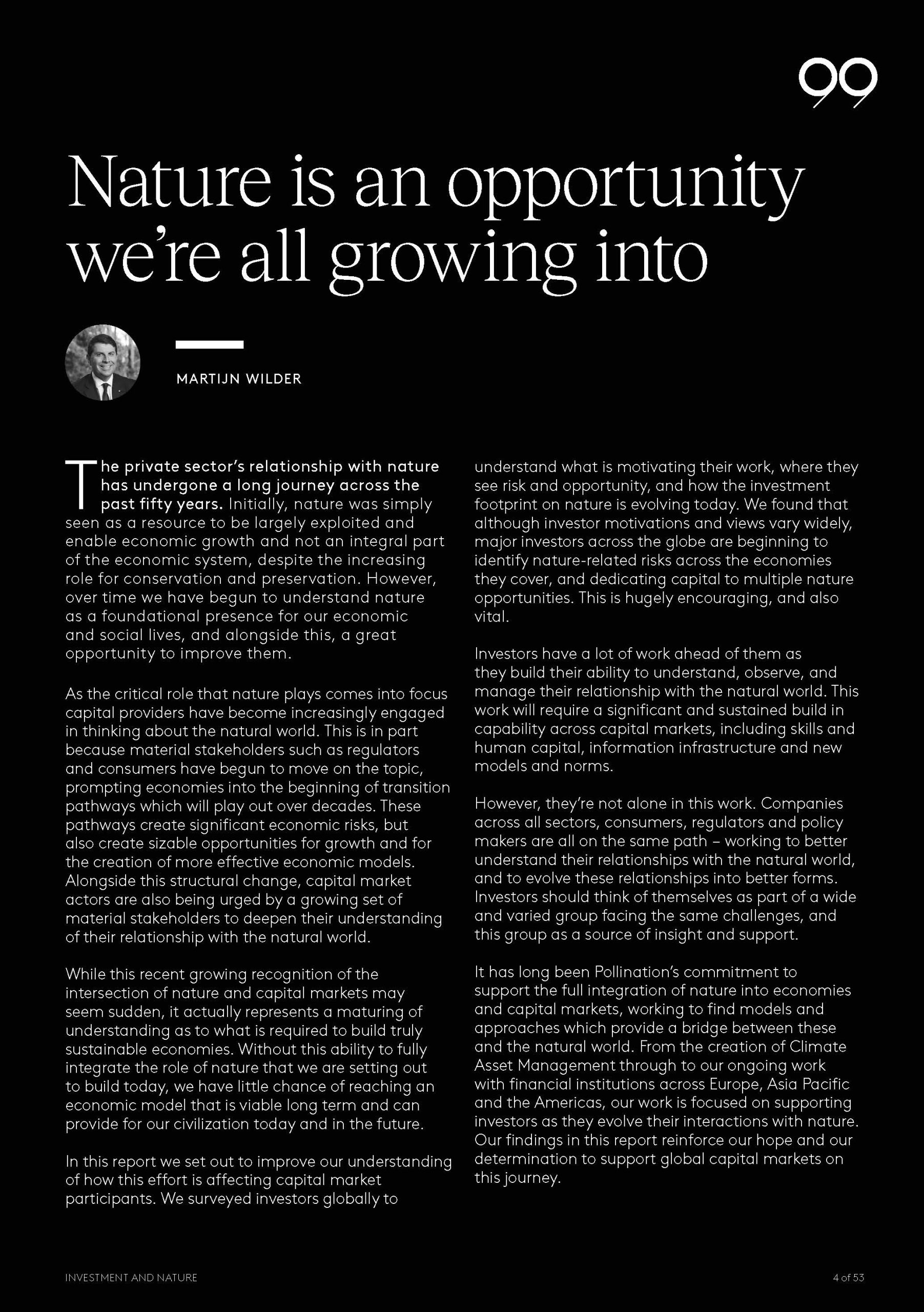
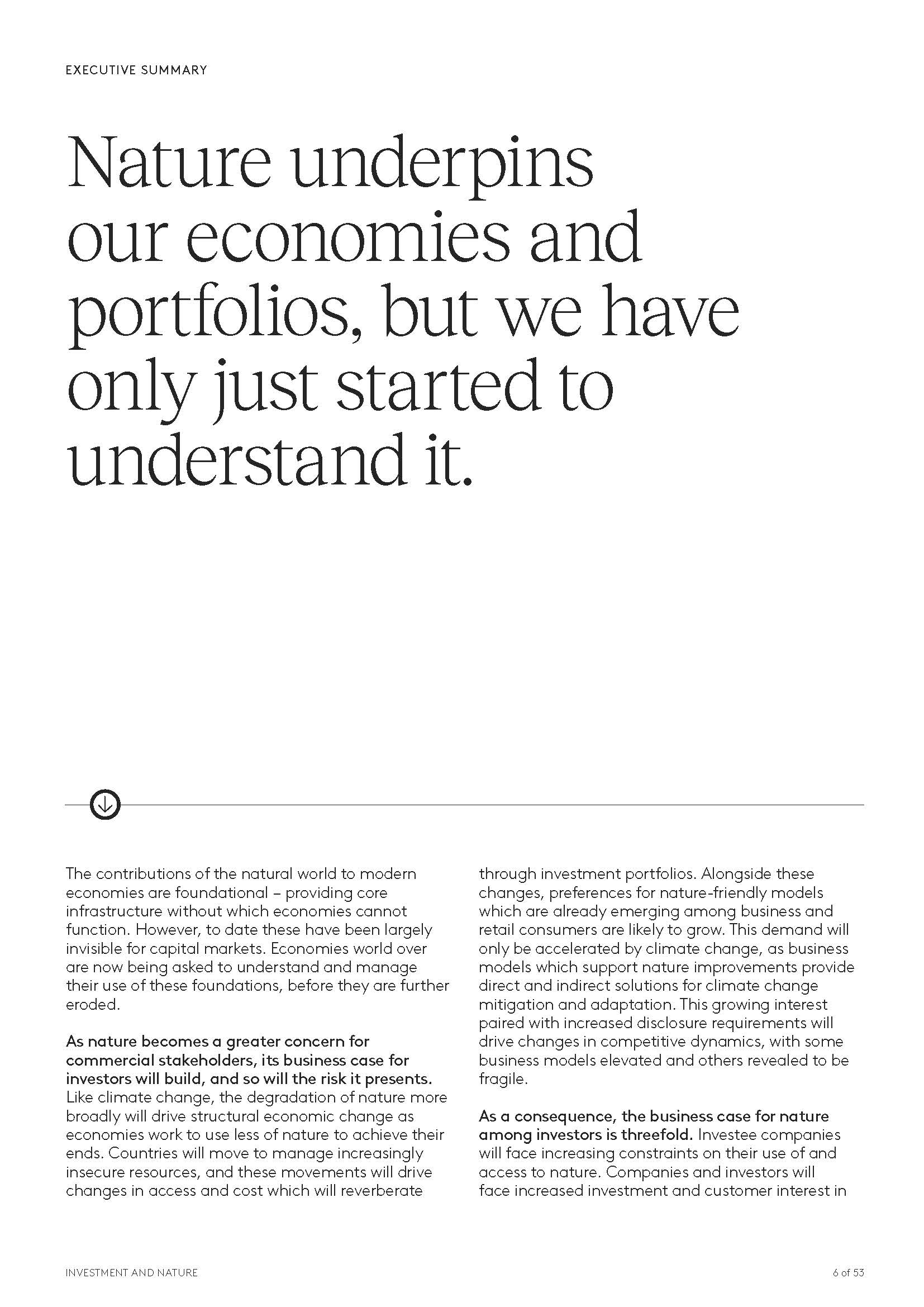
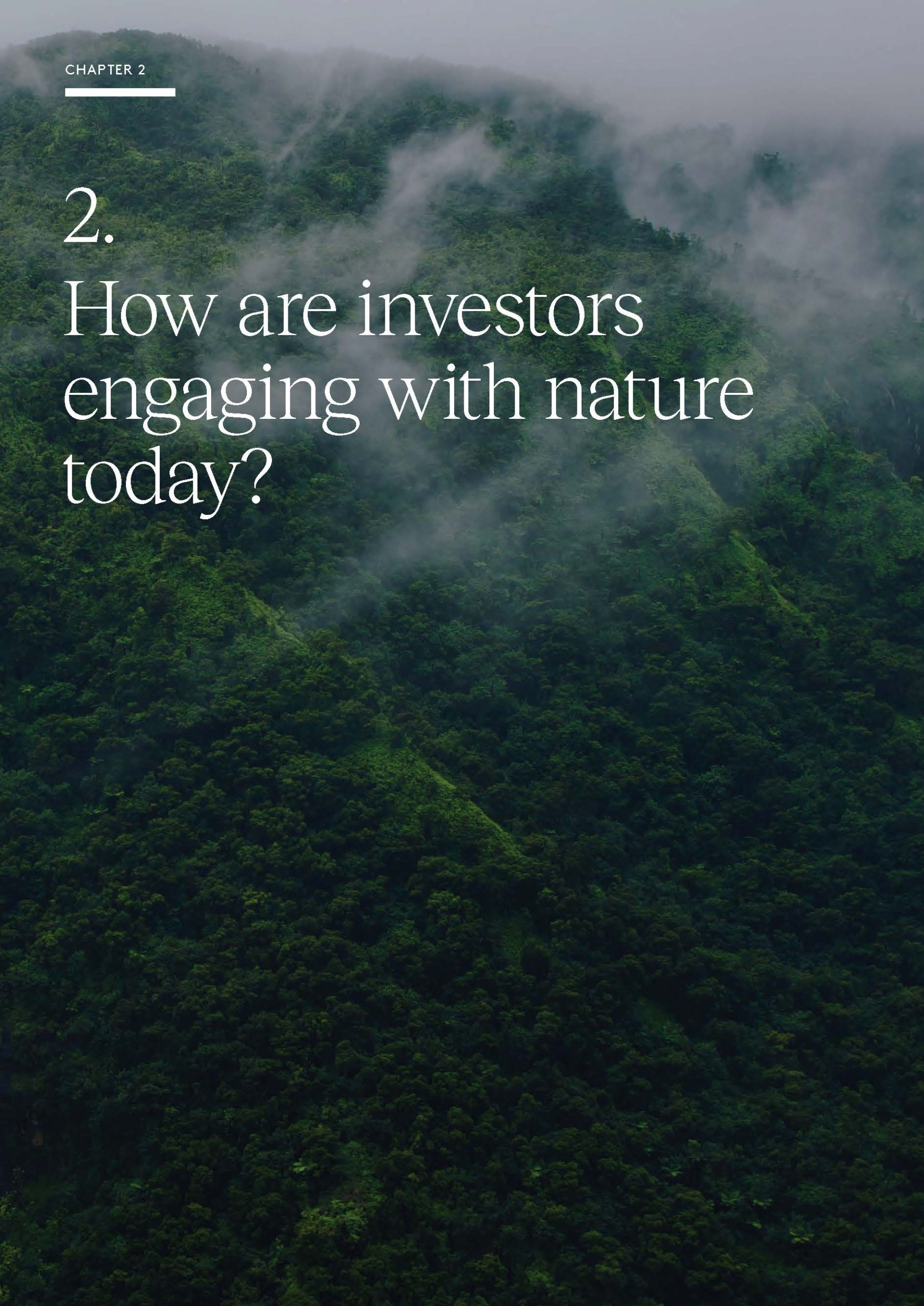
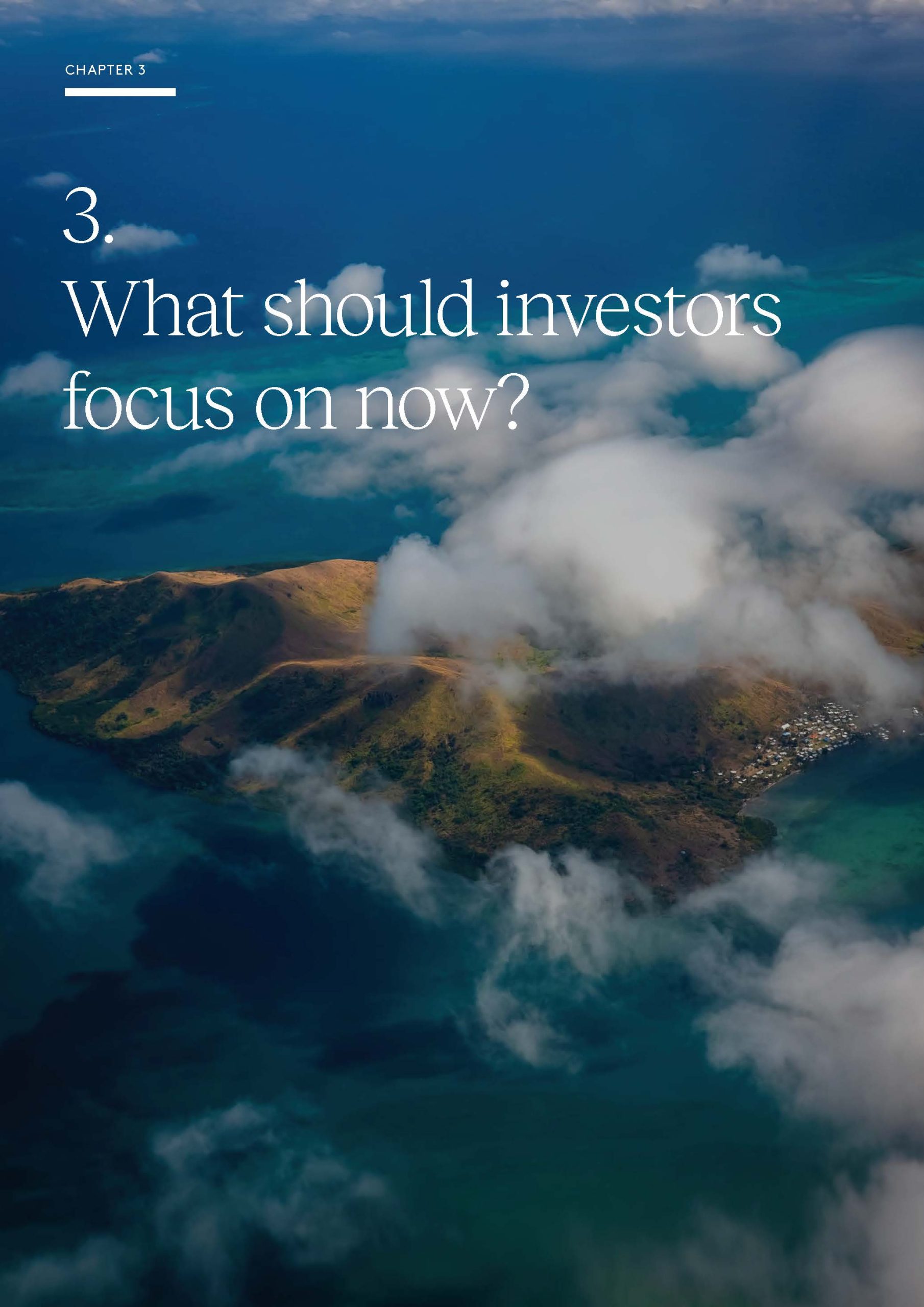
Pollination is highly engaged in this space – having worked on nature in both our investment and advisory businesses for quite some time. However, we were surprised by the scale of investors engaged with the topic today, and how high this engagement is globally. We’re still relatively early in the activation of capital markets on nature, and so the size of the firms already working on nature was interesting to us – 74% of our sample have responsibility for between US$30bn and US$500bn. This tells us that very large investors are already actively working in the nature space. This is excellent, and it’s essential.
We’re also glad to see the extent to which the investment community has perceived of nature as a theme which signals opportunity. This perception took much longer to develop on climate change, so seeing investors engage comparatively early with nature as an opportunity is a surprise. However, we note that a much smaller portion of investors working on the topic are thinking about the risks presented by nature. Just under 59% of investors we surveyed said they were considering risks to their portfolios, meaning that the remaining ~40% are not yet considering nature-related risks. This suggests to us that investors still have a long journey ahead to improve their understanding of exactly how extensive those risks are and how they are developing as policy changes across the globe. We expect that investor practice and investor work on that space is going to develop quite significantly over the coming 18-24 months.
We find this observation particularly interesting because we saw a very different trend with climate. Investors were cognisant of climate risk first, and most investors began their work on climate change on the risk side. It took a long time for many investors to turn their attention to the abundant opportunities presented by climate change and transition. This experience may have changed the way investors are now approaching nature – predisposing them to look for opportunity earlier.
Another interesting finding in this report is that investor engagement and motivation in nature, and access to natural capital, can be significantly different across regions – even adjacent regions. While we were impressed to find significant samples of institutional investors working on nature in all regions, their motivations, identification or risk, and investment inclinations vary widely. This reflects the broader Responsible Investment and ESG space – with investor motivations and interests varying widely in response to local experience and policy.
Investor exposures to nature related opportunities vary widely with region. For example, 34% of UK investors reportedly have exposure to nature-positive real estate, while only 15% of their French neighbours reported exposure. Investor motivation also differs. Interestingly, despite their relative geographic proximity investors in Japan and Singapore have sharply differing motivations to invest in nature. 70% of Japanese investors motivated by impact (the highest number of all regions for this question), while Singaporean investors are predominantly motivated by financial returns (71%). Singaporean investors also are more likely to observe risks across all sectors than any other jurisdiction by quite a substantial margin. We find ourselves wondering whether that’s because, geographically, Singaporean investors have a front row seat to some of the really significant nature risks that are playing out across Asia Pacific.
Despite huge polarisation on ESG risks or ESG generally, US investors are some of the most engaged globally on nature. They see a strong set of opportunities in the nature space, particularly Nature-based Solutions and nature markets, and they also display very high levels of activity integrating nature into their investment frameworks.
The takeaway for Pollination as a global advisory and investment firm is that our work needs to be regionally tailored. We’ll be very interested to see when we repeat this survey whether these regional differences persist over time (or expand), or whether we start to see them converge into a more uniform global profile. Nature opportunity and risk is going to be driven by regionally specific policy and economic responses, and regions have very different exposure to nature risks and opportunities as well. As such, this convergence might be unlikely. We will be watching closely to see how these currently very diverse set of motivations, philosophies, approaches on nature develop over time.
We intend to repeat our Nature Finance Focus survey such that we can track the evolution of investment in nature, the move to opportunities as policy environments shift, and the consideration of nature risk as it inevitably grows. We know that nature is a core foundation to economic activity globally and that this foundation is both badly damaged and also increasingly visible. The way that economies the world over use this foundation will have to change, and so will the commercial and competitive pressures that it exerts on companies and their capital providers. We will be watching to see what impact these changes have on investors now and in the near future.
15 April 2025 / WORDS BY Pollination Foundation
read article
Receive latest news and global perspectives from Pollination.
By clicking submit, you agree to our Terms & Conditions.